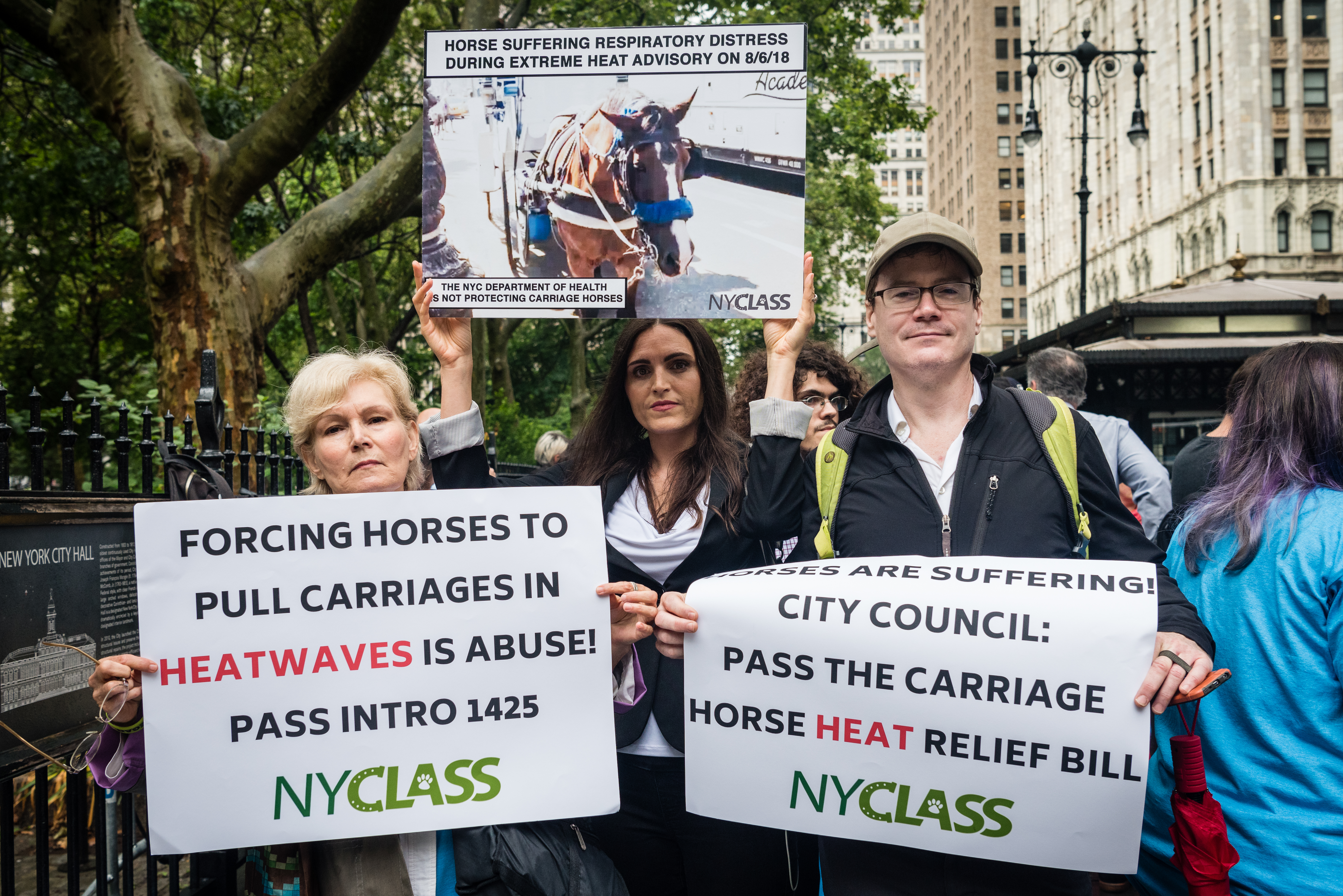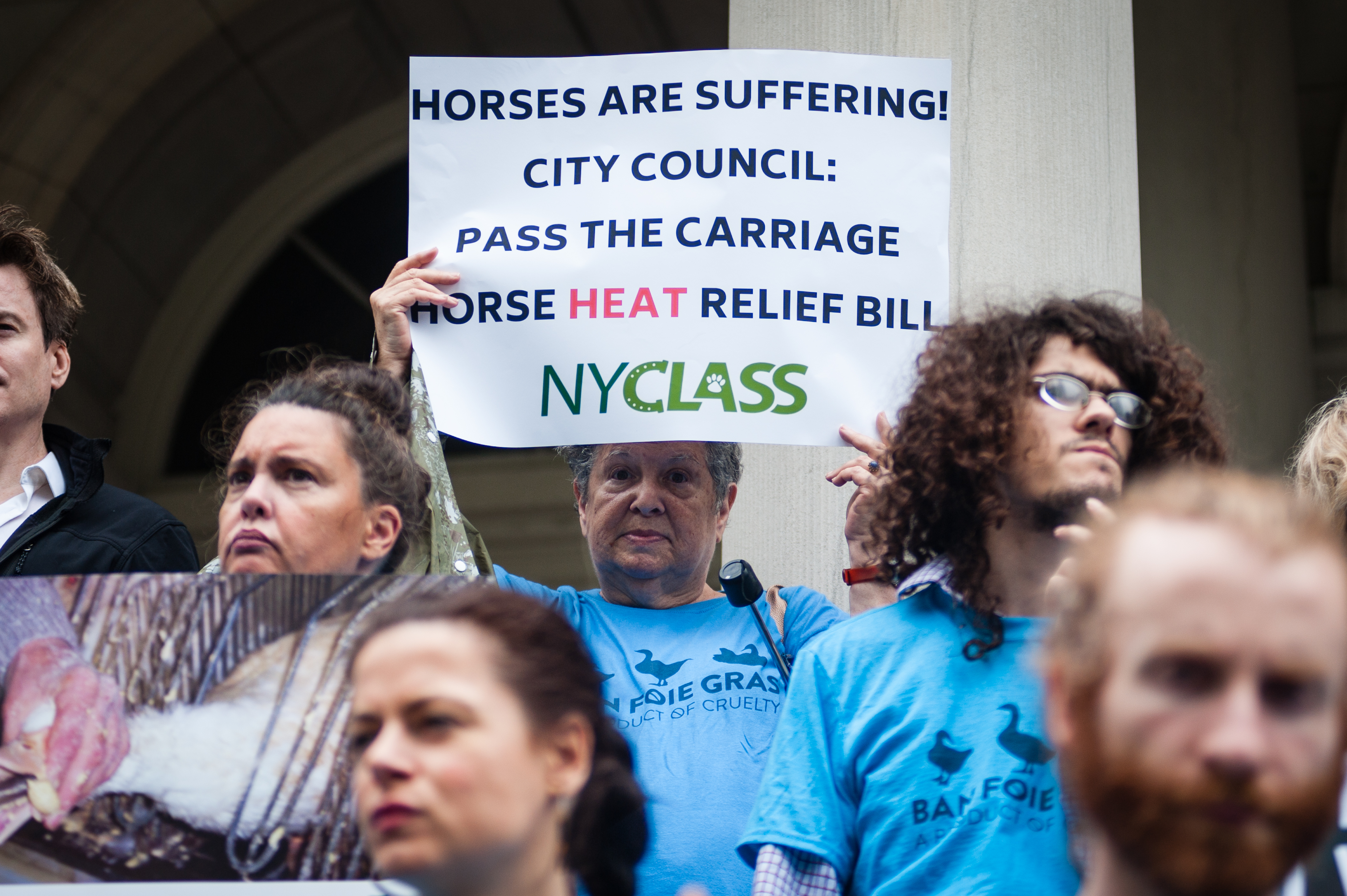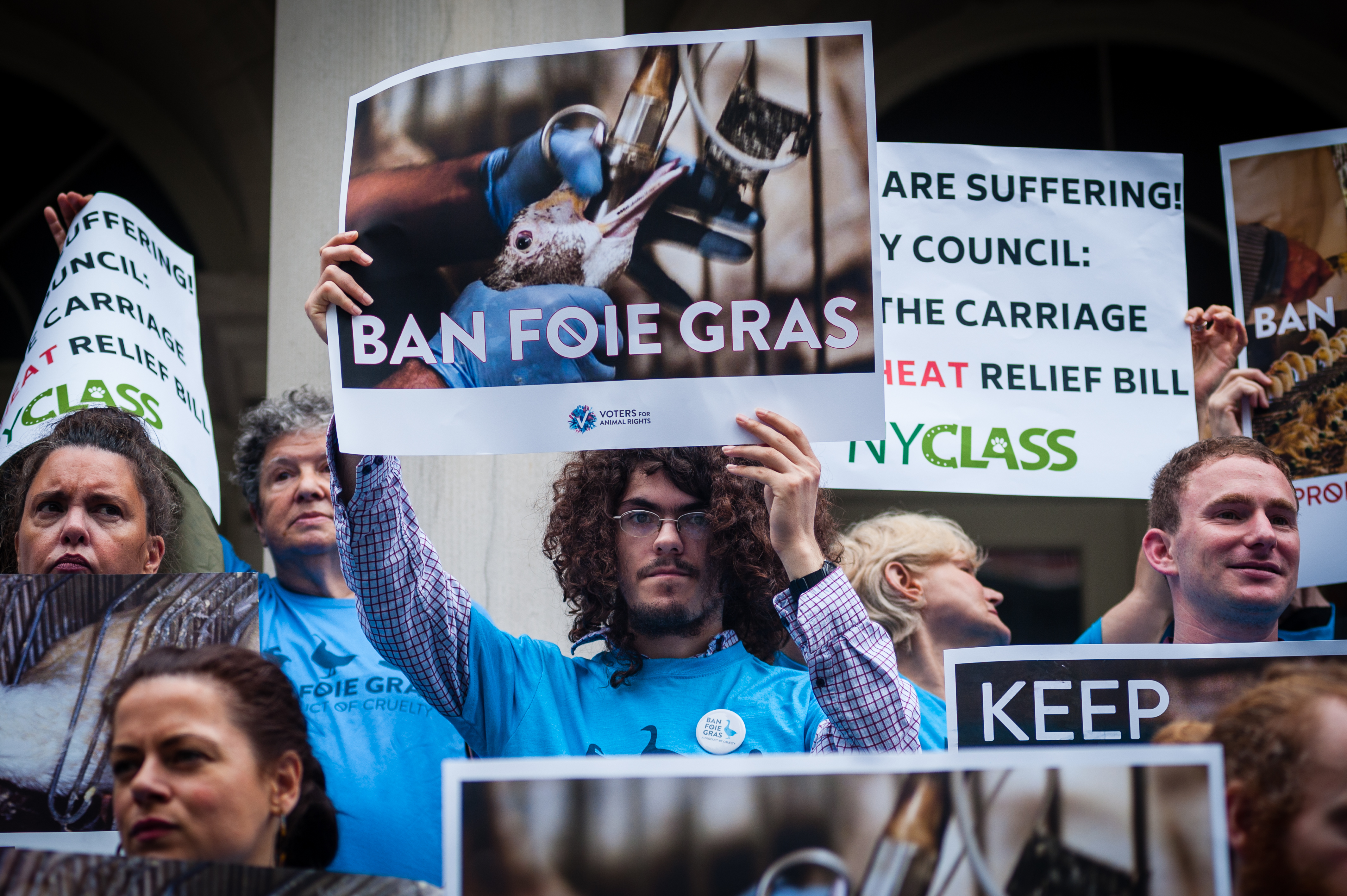On June 18, 2019, New York City’s Committee on Health, chaired by Councilmember Mark Levine, held a hearing on a set of proposals intended to strengthen the welfare of animals. The 16 item package included a resolution to recognize “Meatless Monday” in New York City, a tax credit for the adoption of household pets from animal shelters or humane societies and a law to prohibit the trafficking of wild birds. According to Joyce Friedman of Voters for Animal Rights, New York City pigeons are captured with large nets, often breaking their wings and legs in the process, and taken to Pennsylvania for pigeon shooting contests. If the bill passes, violators would be charged with a misdemeanor and could face up to 1 year in prison and a $1,000 fine.
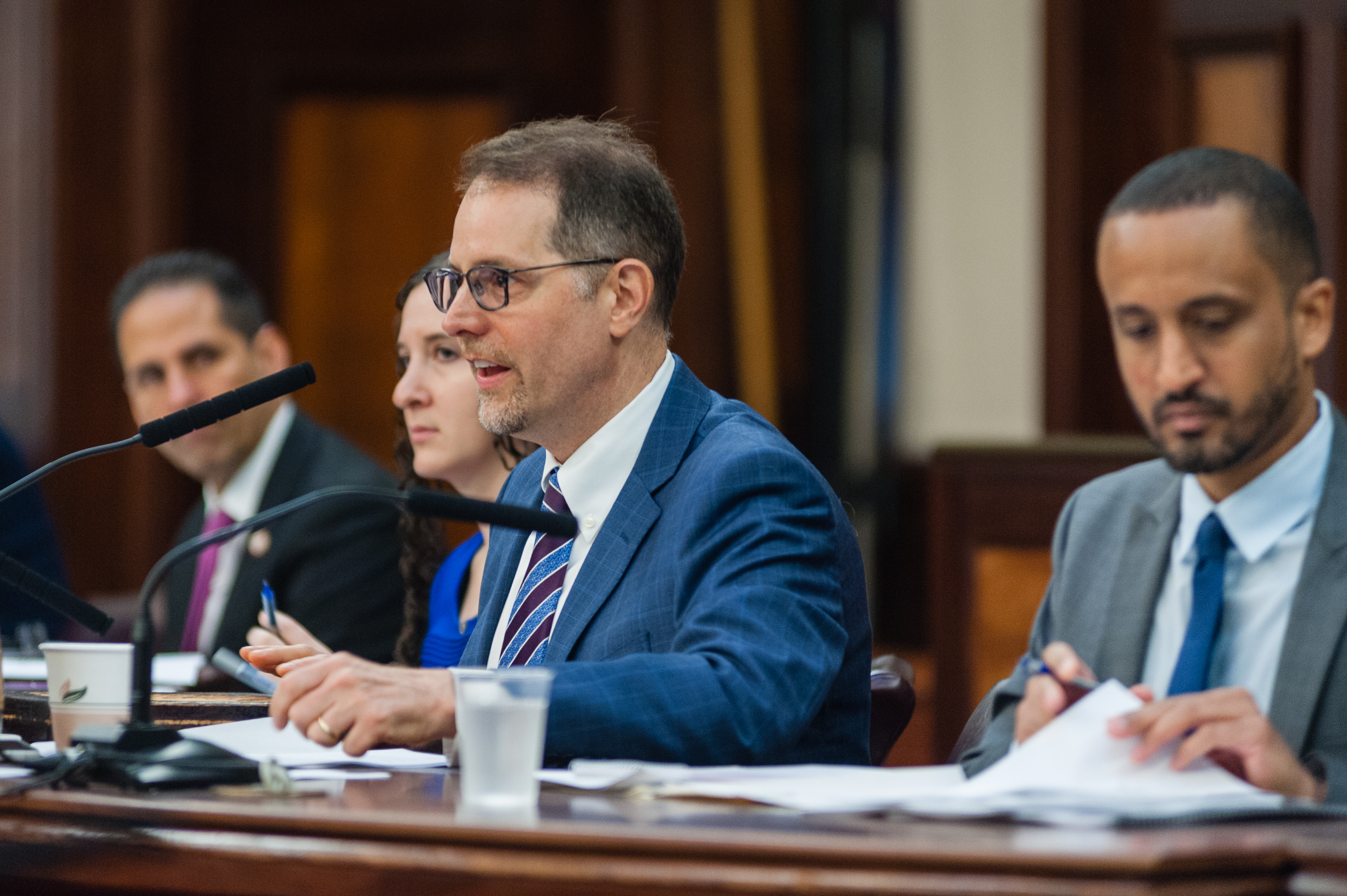
The bill drawing the most attention was the proposed ban of Foie Gras in New York City. Proponents of the law gathered on the steps of City Hall before the hearing holding PETA issued signs with images of force-fed geese. Animal rights activists have long argued that the process of force-feeding geese and ducks is a barbaric way to fatten them up. They refer to undercover investigations which show torture, including death from force-feeding and birds with open, bleeding wounds left to suffer in small wire cages without proper veterinary care.
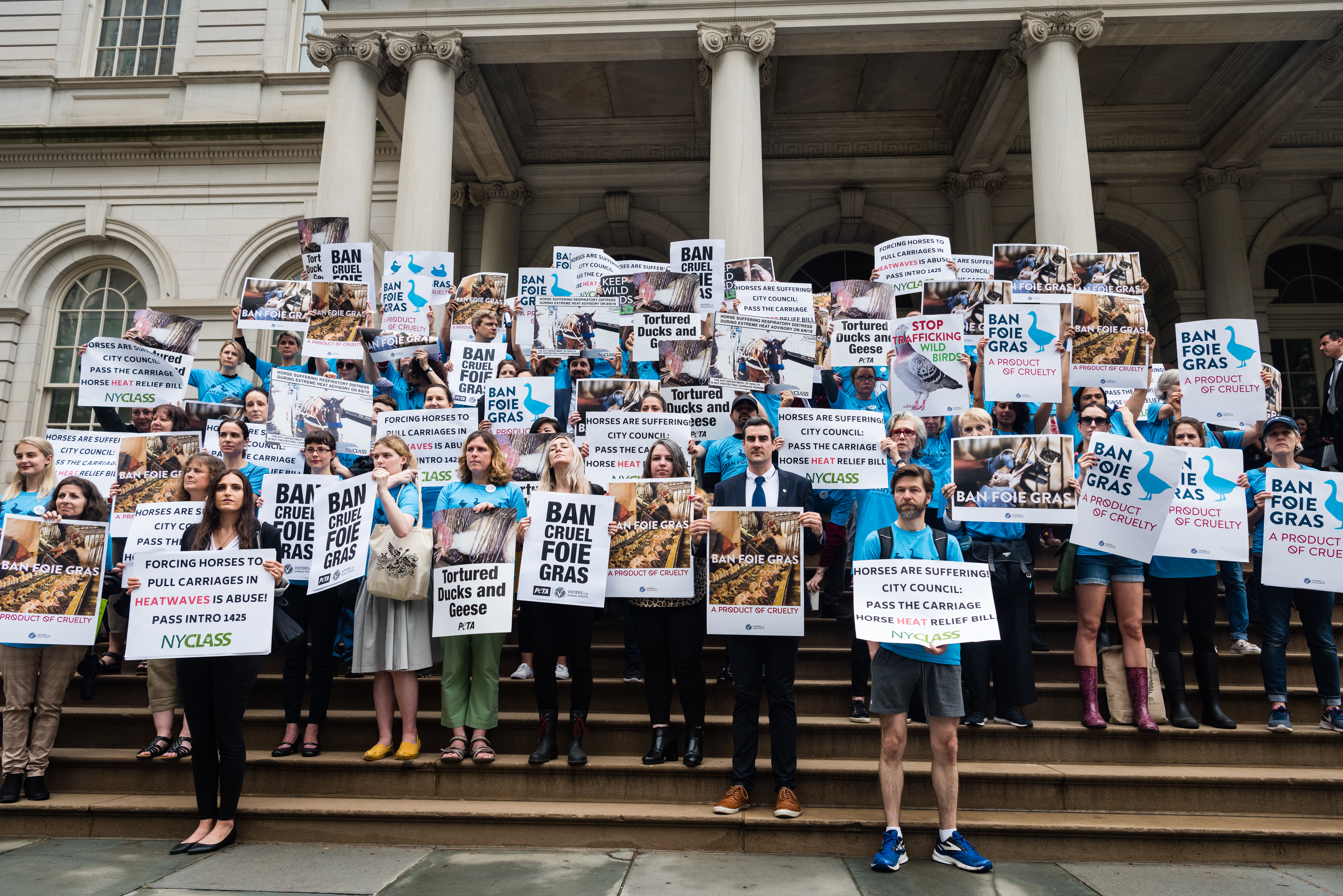
In a newsletter to the members of the French American Chamber of Commerce Ariane Daguin, CEO of D’Artagnan, a purveyor of Foie Gras refuted those claims and pointed to a scientific study which found that biological indicators of stress were ‘hardly affected’ by the feeding procedure.” She continued that ducks can swallow fish and prey because they don’t have a gag reflex.
Upstate farmers and farm workers who attended the hearing fear the financial impact a foie gras ban would have on their industry. A ban would mean laying off hundreds of workers in a rural area where most rely on farmwork, but owners also are afraid that they have to close since approximately one-third of their profits come from New York City. They assured the committee that the animals are humanely raised and don’t experience any distress, and extended an invitation to the City Council to visit the farms.
If the bill, introduced by City Council member Carlina Rivera, is passed, violations would be a misdemeanor punishable by fines of up to $1,000 and a year in jail.
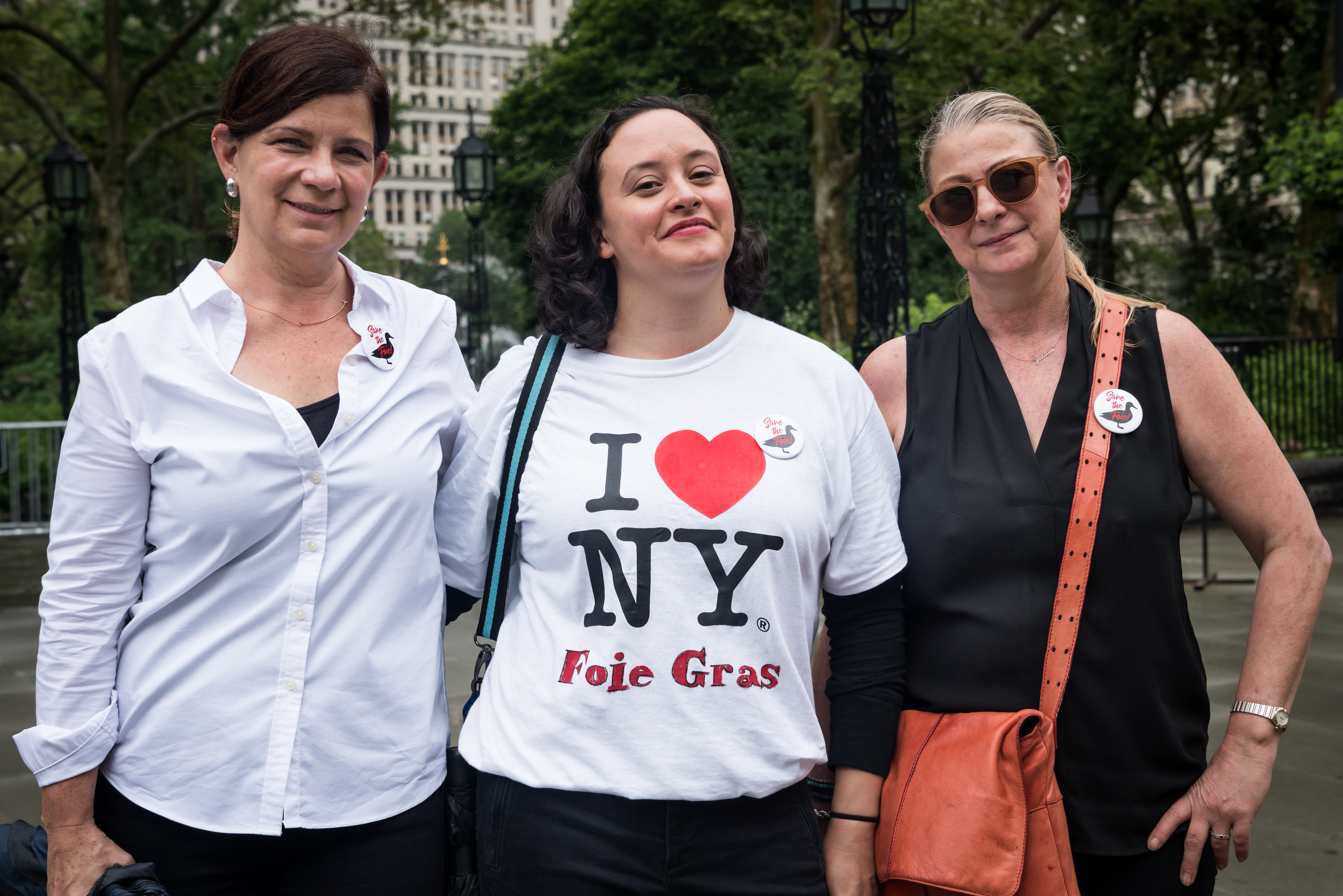
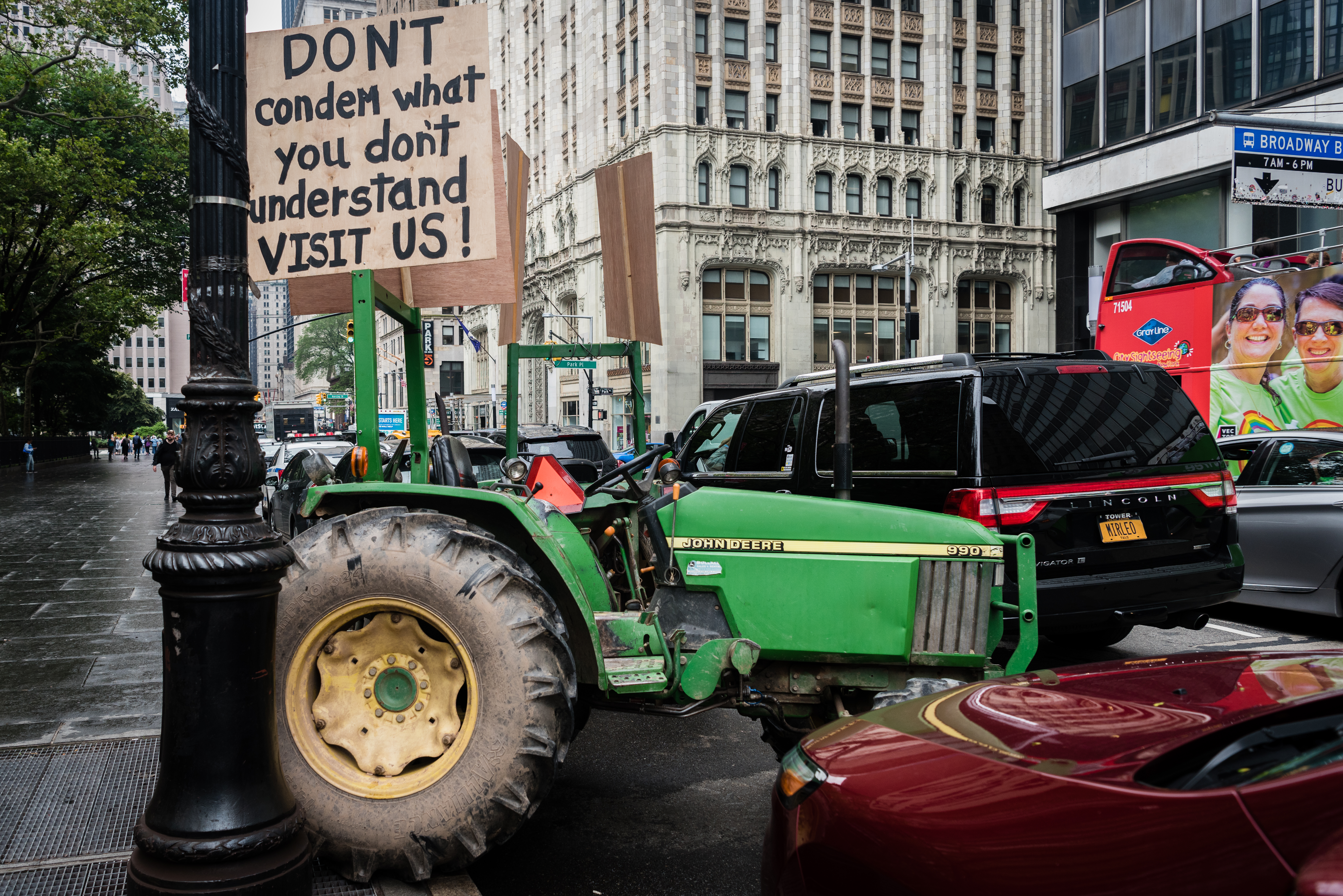
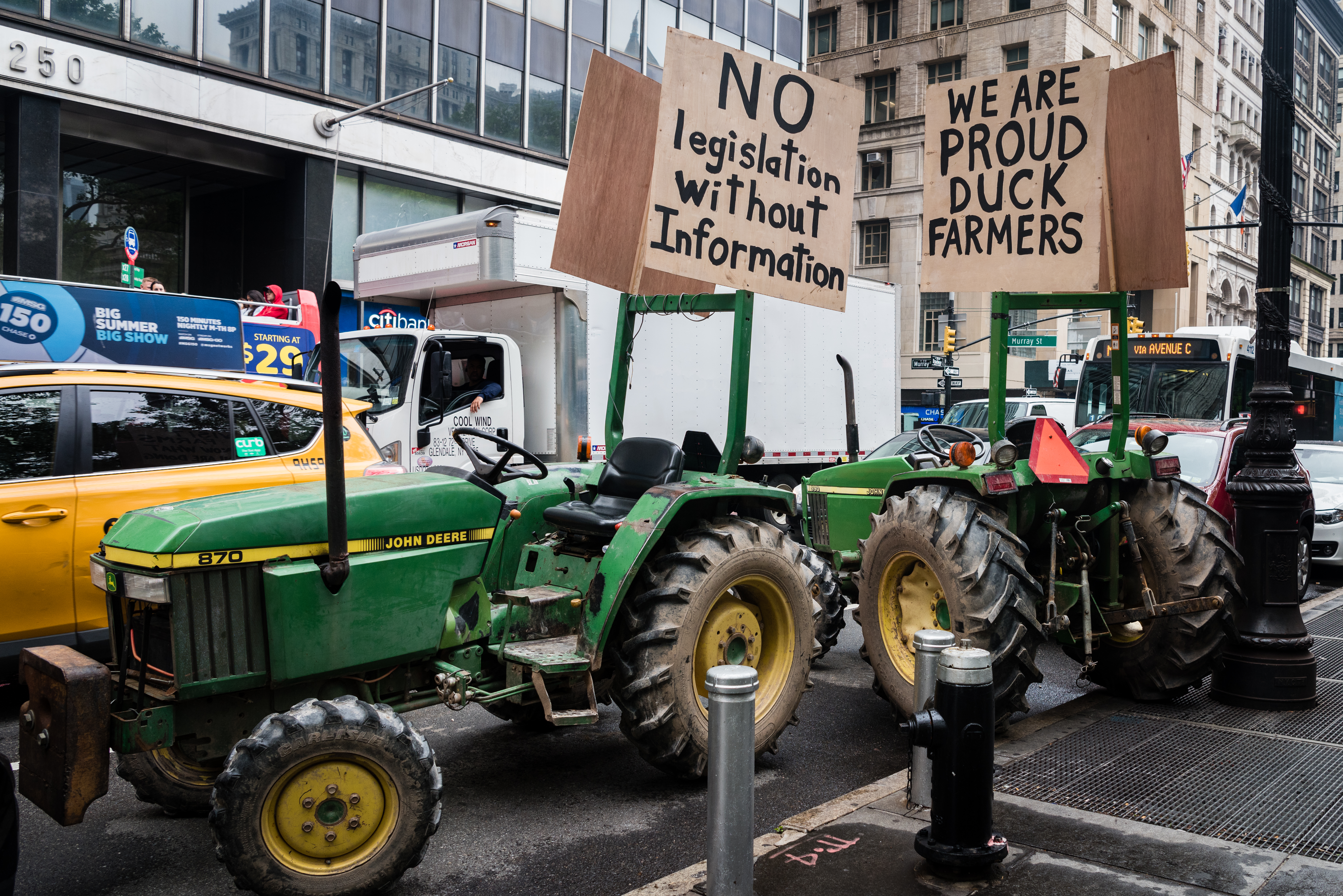
The hearing also included a proposal which would make it unlawful to work carriage horses whenever the heat index reaches or exceeds 90 degrees Fahrenheit. Under the current law, carriage horse owners only must cease operation when the actual temperature reaches 90 degrees Fahrenheit. Activists have long been fighting for the complete ban of horse-drawn carriages and achieved a small victory when Mayor de Blasio released new rules moving the horse-drawn carriage lines away from midtown traffic and restricting them to Central Park.
